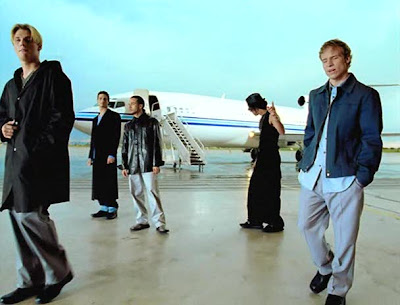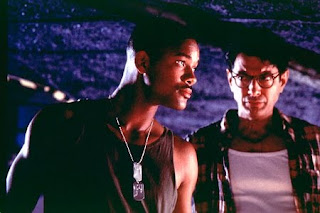
Finally watching the film adaptation of Cormac McCarthy’s 2006 novel “The Road” was a long journey for me, although not a post-apocalyptic one.
The film was released December and, like the adaptation of McCarthy’s “No Country For Old Men,” did not make the cut to be featured at Valdosta Stadium Cinemas. Alright then, no problem. Chrissty and I were making the 1,500 mile trek to New Hampshire to visit my folks for Christmas, so it had to be featured there at one of the many surrounding theaters, right?
Yes, its playing. My mom quipped grinning. Knowing the punch line was right around the corner
I played the straight man.
Where at?
I found it playing in Minnesota.
Skunked again. I thought. This movie has turned into Ralphie’s official Red Ryder carbine-action 200-shot range model air rifle with a compass in the stock, and this thing which tells time. Okay, well I’ll give Valdosta another chance. Many films haven’t been released there immediately only to be shown a month or two later after their initial wide scale release.
Not happening.
Okay, I give up. I’ll see it on DVD. Five months later it was released on May 25. Sorry, Netflix I could not wait the customary two months to receive this new release.
So, to the nearest redbox, Chrissty and I went. Sold-out. Damn. Back to the apartment. This time to reserve a copy. Reserved we headed another two and a half miles north to the next nearest Kroger. One bonus of our new Atlanta living, more than one redbox.
There was a mass of redbox devotees huddled around the machine. OUT-OF-ORDER. The sign laughed at me. Hand held chaos as users scrambled to their cell phones to report the inconvenience. Me one of them. The one drawback to this new school version of renting films, no human hand to pass over a DVD. Was this machine self aware? Was it trying to spite us?
This was now a mission. A call to redbox, a cheery customer rep named Chris and a new destination another three miles away to the next nearest redbox. Chrissty and I were off.
15 minutes later we had our movie in hand, after waiting for two girls to take 10 minutes to ultimately decide on Marley and Me, not the best Saturday night fare unless they had a surplus of Kleenex (saying the guy who is renting “The Road”), and another chap who had preconceived plans for Sherlock Holmes.
 So was the film worth the months of waiting and the scavenger hunt across Atlanta? Sure, with the stipulation that we had nothing better to do and had been wanting to explore the city randomly anyway for the past weeks.
So was the film worth the months of waiting and the scavenger hunt across Atlanta? Sure, with the stipulation that we had nothing better to do and had been wanting to explore the city randomly anyway for the past weeks.In a year that broughr this and another post-apocalyptic film, the multimillion dollar waste 2012 (For the record we didn’t even make it through the whole thing, debating a quarter of the way to just send it back before finally relenting half way through), “The Road” was a terrifically depressing film, an anti-2012, in that it was actually worth watching, and contained the realism and heartache that an end of world scenario would actually create.
Viggo Mortensen is typical Viggo playing The Father perfectly opposite a tearfully realistic turn as The Son by Kodi Smit-McPhee as the two head south in hope of warmer weather and a new civilization.
While the film was worth our journey, I understand now why in a year that also brought us 10 nominees for the Academy’s Best Picture Award, it was not one of them. The film’s gloomy imagery matches the grayness McCarthy conveyed in a world where humanity is sharing a can of pears with a stranger amidst cannibals hunting for human flesh.
Mortensen, McPhee and even director John Hillcoat do the best they can translating McCarthy’s material to the screen, showing viewers the modern-day heartache of living just to survive. Its just that something is missing. The film seems to do everything right, but for some reason, it feels like a shell in comparison to the weight of the novel.
Maybe this is just an ode to the greatness of McCarthy. The product of attempting to translate a novel to the screen with the scope and masterful writing of “The Road." Sure the Coen’s managed to do it with “No Country for Old Men," but the success of that film is based on its action-packed sequences and plot twists, along with its unrelenting look at good versus evil, something “The Road” was never about.
Where "No Country for Old Men" was meaning disguised as an action packed thriller, "The Road” is anti-Hollywood at its best, relying almost completely on human emotion and the bond between father and son -- something not easily presented on the screen.
In the end, that is where the novel "The Road" succeeds so well and why the film seems to fall a bit flat. It’s definitely worth watching, but fans of the book will feel that something is missing. “The Road” is just another example of the impossibility that it usually is for a film to live up to the book that it is based on.












